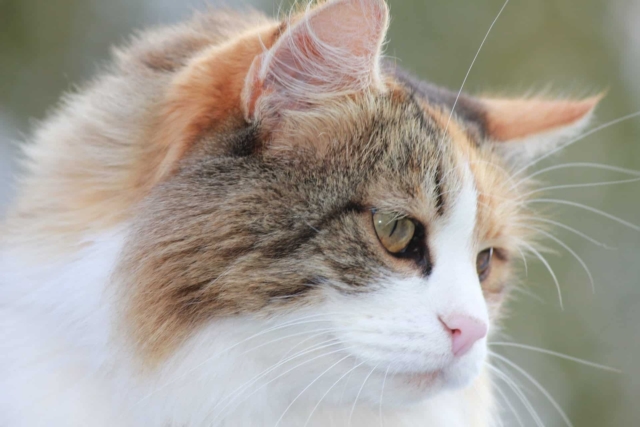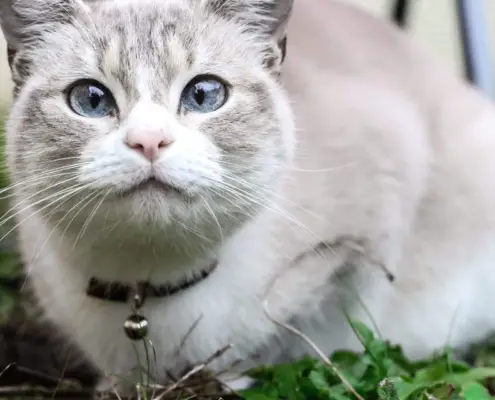
Mammary tumors in cats are abnormal growths that develop in the mammary glands, which are responsible for producing milk. These tumors can be benign or malignant, and they are more commonly found in female cats that have not been spayed. Mammary tumors are a serious concern for cat owners, as they can potentially spread to other parts of the body. It is crucial to understand the causes, symptoms, and treatment options for mammary tumors in cats to ensure the best possible care for our feline companions.
Types of Mammary Tumors in Cats
There are several types of mammary tumors that can affect cats. The most common types include adenomas and adenocarcinomas. Adenomas are benign tumors that do not usually spread to other tissues and are usually easy to remove surgically. Adenocarcinomas, on the other hand, are malignant tumors that have a higher chance of spreading to nearby lymph nodes or other organs. Other less common types of mammary tumors in cats include fibroadenomas, solid carcinomas, and complex carcinomas.
Causes of Mammary Tumors in Cats
The exact causes of mammary tumors in cats are not well understood, but several factors have been associated with an increased risk. One of the most significant risk factors is the cat’s reproductive history. Cats that have not been spayed or were spayed late in life have a higher likelihood of developing mammary tumors. Hormonal influences, such as exposure to high levels of estrogen, may also play a role. Additionally, certain genetic factors and environmental factors, such as exposure to cigarette smoke or certain chemicals, may contribute to the development of mammary tumors in cats.
Symptoms and Signs of Mammary Tumors in Cats
Detecting mammary tumors in cats can be challenging, as they are often not visible or palpable until they have reached a significant size. However, there are several signs to watch out for. The most common symptom is the presence of a lump or mass in the mammary gland area. The lump may feel firm or rubbery, and it can vary in size. Other signs that may indicate the presence of a mammary tumor include swelling, redness, ulceration, discharge from the nipples, and changes in the shape or size of the mammary glands. It is crucial to consult a veterinarian if any of these symptoms are observed.
Diagnosis of Mammary Tumors in Cats
To diagnose mammary tumors in cats, a veterinarian will typically perform a thorough physical examination and may recommend additional tests. These tests may include fine-needle aspiration cytology, where a small sample of cells is collected from the tumor and examined under a microscope, or a biopsy, where a small piece of tissue is surgically removed for further analysis. These diagnostic procedures help determine if the tumor is benign or malignant and provide valuable information for developing an appropriate treatment plan.
Treatment Options for Mammary Tumors in Cats
The treatment options for mammary tumors in cats depend on various factors, including the type of tumor, its stage, and the overall health of the cat. The primary treatment approach for mammary tumors is surgical removal. This involves removing the affected mammary gland(s) along with the tumor. In some cases, the veterinarian may recommend removing multiple glands to reduce the risk of recurrence. Surgery is often combined with other treatment modalities, such as chemotherapy or radiation therapy, to increase the chances of a successful outcome.
Surgical Removal of Mammary Tumors in Cats
Surgical removal of mammary tumors in cats is typically performed under general anesthesia. The surgeon will make an incision in the skin over the affected gland(s) and carefully remove the tumor along with the surrounding tissue. In some cases, the entire mammary chain may need to be removed if multiple glands are affected. The incision is then closed using sutures or staples. Post-operative care includes pain management, monitoring for any signs of infection or complications, and ensuring the cat’s comfort during the recovery period.
Chemotherapy for Mammary Tumors in Cats
Chemotherapy is often recommended as an adjunct to surgery for cats with mammary tumors, especially if the tumor is malignant or has the potential to spread. Chemotherapy involves the use of drugs that target and kill cancer cells. These drugs can be administered orally or intravenously. The specific chemotherapy protocol will depend on the individual cat’s condition and the stage of the tumor. While chemotherapy can have side effects, such as nausea or decreased appetite, most cats tolerate the treatment well.
Radiation Therapy for Mammary Tumors in Cats
Radiation therapy may be recommended in some cases to target and kill cancer cells that may remain after surgery. This treatment modality involves the use of high-energy radiation beams to destroy cancer cells. Radiation therapy is usually administered in multiple sessions over a specific period. The exact treatment plan will be determined by the veterinary oncologist based on the cat’s condition. Radiation therapy may have some side effects, such as skin irritation, but these are typically manageable with proper care and monitoring.
Prognosis and Follow-Up Care for Cats with Mammary Tumors
The prognosis for cats with mammary tumors depends on several factors, including the stage of the tumor, its type, and the overall health of the cat. Early detection and treatment offer the best chances of a positive outcome. Cats with benign tumors that are completely removed surgically often have an excellent prognosis. Malignant tumors, especially those that have spread to other tissues or organs, may have a poorer prognosis. Regular follow-up visits with the veterinarian are essential to monitor the cat’s progress, detect any potential recurrence, and provide ongoing care and support.
Preventing Mammary Tumors in Cats
One of the most effective ways to prevent mammary tumors in cats is by spaying them at an early age. Spaying before the first heat cycle significantly reduces the risk of developing mammary tumors. The procedure removes the ovaries and uterus, eliminating the hormonal influence that can contribute to tumor development. It is essential to consult with a veterinarian to determine the best time for spaying and to discuss any potential risks associated with the procedure.
Conclusion
Mammary tumors in cats are a serious concern that requires prompt attention and appropriate treatment. Understanding the causes, symptoms, and treatment options for mammary tumors is crucial for providing the best possible care for our feline companions. Regular veterinary check-ups, early detection, and timely intervention play a vital role in improving the prognosis for cats with mammary tumors. By staying informed and taking preventive measures, we can help reduce the risk of mammary tumors in cats and ensure their overall well-being.
If you suspect that your cat may have a mammary tumor, it is crucial to seek veterinary care immediately. Early detection and treatment offer the best chances of a positive outcome. Contact your veterinarian to schedule an appointment and discuss the best course of action for your cat’s health.
If you enjoyed my article, I would appreciate you sharing it with your network.

Sima Ndlebe
Sima writes for CatBuzz. He is interested in Cats, Health and Fitness, and Entrepreneurship.
Published: 17 November 2023
Related Articles
Disclaimer
The content found on CatBuzz.org is presented on an "as is" basis and is intended for general consumer information and education purposes only. Any utilization of this information is voluntary and solely at the user's own risk.
None of the articles or content should be regarded as, or used in place of, veterinary medical advice, diagnosis, or treatment. The information provided on the website is purely for educational and informational intentions and should not be considered a substitute for professional guidance from a veterinarian or other qualified expert. The articles are designed to inform consumers about veterinary healthcare and medical matters that may impact their cat's daily life. It should be noted that this website and its services do not constitute the practice of any form of veterinary medical advice, diagnosis, or treatment. CatBuzz.org explicitly disclaims any liability for any direct or indirect damages or losses that may arise from the use of or reliance on the information contained within the content.
Consumers must consult a veterinarian, veterinary specialist, or another qualified veterinary healthcare provider when seeking advice regarding their cat's health or medical conditions. It is important not to ignore, avoid, or postpone seeking medical advice from a veterinarian or other qualified veterinary healthcare provider solely based on information obtained from this website. If you believe that your cat may be experiencing a medical issue or condition, it is imperative to promptly contact a qualified veterinary healthcare professional.



